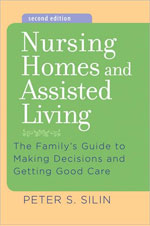A Wish for Death is not the Same as a Death Wish
Mrs. N died on Monday. She was 100 years old; her birthday was in May. In April, when she told me about the party her family was planning, I reminded her she had once told me she liked to dance.“ We’ll have a waltz on your 100th birthday,” I told her.
“Oh, go on,” she said with a pleased scowl,” I haven’t waltzed for years.”
“Well then, “ I said, “We’d better start practicing now.”
For many years, since her husband died, Mrs. N had not ventured much outside of her room in the nursing home. But she was alert and relatively well. She loved tennis, she liked to complain. I used to drop in on her, and sometimes I would stop her and say, “You sure are being a crabby old woman today,” and she would break into a smile and giggle.Often she used to say to me, “Oh, why am I here? I wish I could just go.”
I hear that many times in the time I spend with older people. Sometimes when I hear that, I think it is a message about depression; sometimes about pain; sometimes it is about loneliness or uselessness. Sometimes it is about being the last of a generation.
Sometimes, though, I think in the end it is that people say they have done all there is to do. It is a combination of things, but generally a feeling that they can look back and say it is time to go. I look for things that can bring them some pleasure, or some relief. We work on relieving pain. But I don’t to try to help them find a reason to live.
Often times I say to someone “It is okay for you to feel that way.” Listening and letting someone know it is okay to think their journey is over seems to me to be the best thing that we can do. Accepting people’s feelings about where they are in their life means sometimes having to examine our feelings about death, and letting go.



